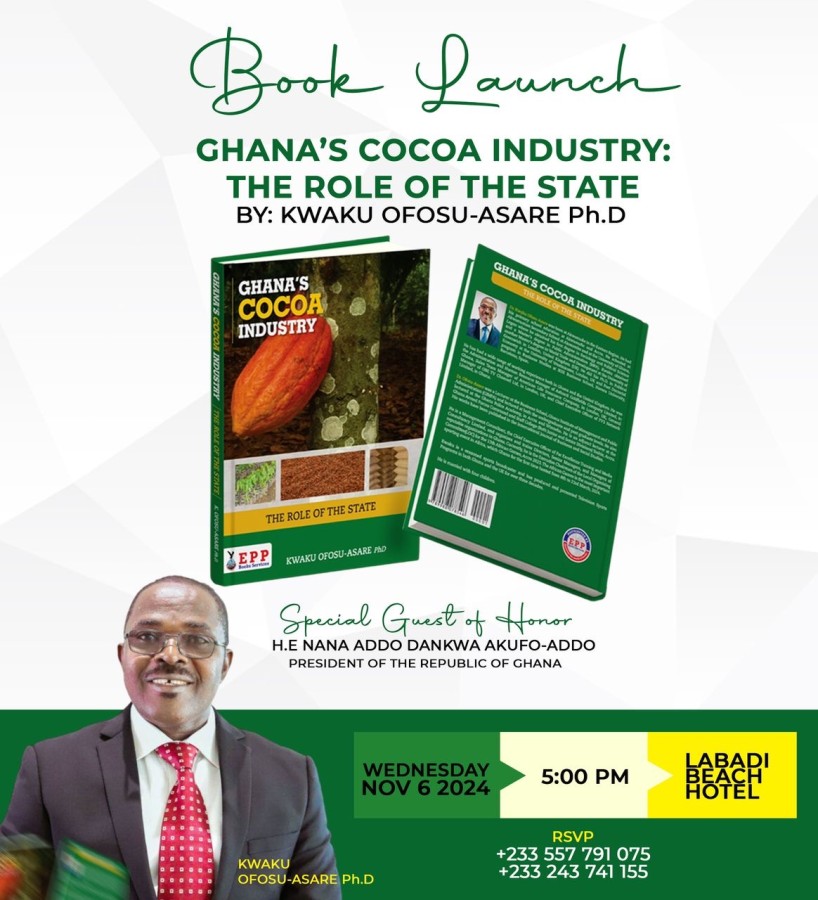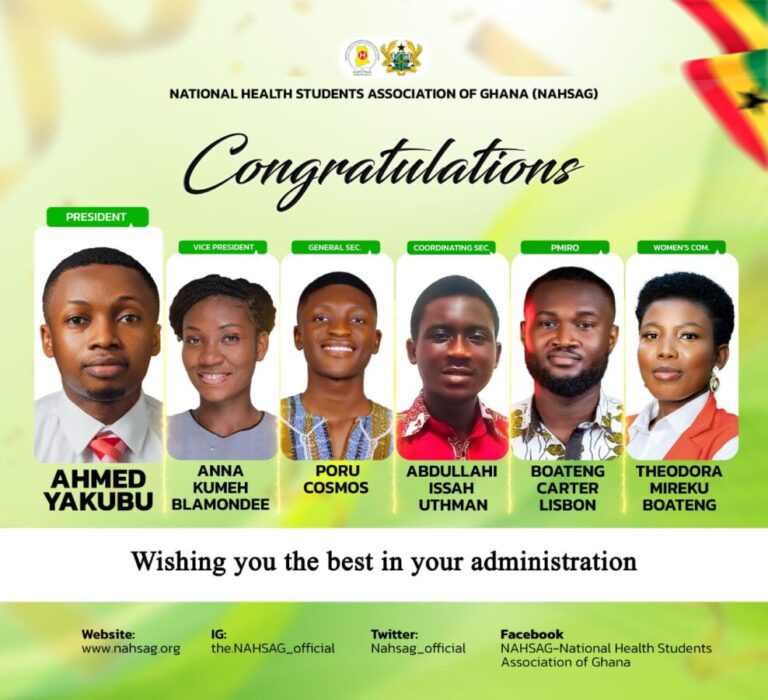
Ghana’s cocoa industry has long been a cornerstone of its economy, driving job creation, export revenues, and international recognition for producing premium cocoa beans. As the world’s second-largest cocoa exporter, Ghana’s success has been built on strategic state interventions that have sustained growth and stability over the years.
In his latest book, “Ghana’s Cocoa Industry: The Role of the State”, Dr. Kwaku Ofosu-Asare explores how state-led strategies transformed Ghana’s cocoa sector. With over two decades of experience in economic development, media consulting, and sports management, Dr. Ofosu-Asare offers a compelling analysis of how governance can drive sustainable growth.
About Dr. Kwaku Ofosu-Asare
Dr. Kwaku Ofosu-Asare is a prominent figure in Ghana’s economic and media landscape. He has served in various roles, including Executive Chairman of the Local OrganisingCommittee for the 13th African Games Accra 2023, where he showcased exceptional leadership. His diverse career and academic background have made him a leading voice in economic policy and development discussions.
Ghana’s Cocoa Journey
Ghana’s cocoa story began in the late 19th century, reaching its peak as the world’s top producer in the 1910s. Despite losing the lead to Côte d’Ivoire in the 1970s, Ghana has maintained a 20% share of global output, earning a premium for its quality beans. The book details how Ghana navigated challenges such as fluctuating prices, infrastructure limitations, and internal production issues, with the state playing a central role in stabilizing and expanding the industry.
The Meso Model: Redefining Economic Reforms
A key theme in Dr. Ofosu-Asare’s book is the “meso model”, a strategic approach to partial liberalization that Ghana adopted in its cocoa sector. This model retained state control through COCOBOD while introducing market-driven reforms. This mid-way approach defied global norms and improved cocoa production, farmer income, and Ghana’s economic resilience.
The book argues that this model challenges the “One Size Fits All” global approach, presenting a context-driven strategy that blends state involvement with market forces—offering a new perspective on economic development.
Empowering Smallholder Farmers
Smallholder farmers are central to Ghana’s cocoa sector. Dr. Ofosu-Asare highlights how state policies, along with innovations like mobile technology, have improved productivity, reduced costs, and enhanced livelihoods. This focus on smallholders aligns with broader themes of socio-economic equity and sustainable development.
A Model for Africa’s Economic Growth
Ghana’s cocoa sector symbolizes resilience and strategic foresight. Dr. Ofosu-Asare’s analysis shows how calculated state decisions not only stabilized the cocoa industry but also offer lessons for broader economic growth across Africa. By resisting full liberalization pressures and embracing globalization selectively, Ghana crafted a sustainable model of economic reform.
Why Read This Book?
“Ghana’s Cocoa Industry: The Role of the State” is more than an academic study; it’s a story of strategic governance and national development. It provides insights into how nations can balance local realities with global pressures. Whether you are a policymaker, economist, researcher, or simply interested in Ghana’s growth story, this book is an essential read.
Join the Book Launch on November 6, 2024
The book will be officially launched at Labadi Beach Hotel, Accra, on November 6, 2024. The event will gather stakeholders, scholars, and the public to discuss Ghana’s cocoa sector and its broader implications for economic policy. Don’t miss the chance to engage with Dr. Ofosu-Asare and explore the themes of this insightful book.
Dr. Kwaku Ofosu-Asare’s “Ghana’s Cocoa Industry: The Role of the State” not only documents Ghana’s cocoa journey but also offers a roadmap for strategic governance in economic development. It’s a timely reminder that with the right blend of state involvement and market mechanisms, nations can achieve sustainable growth.






